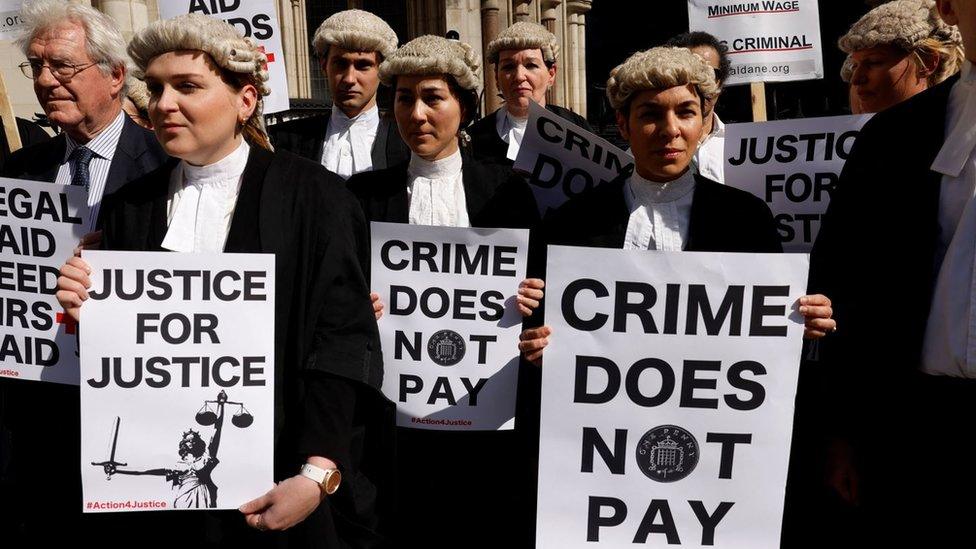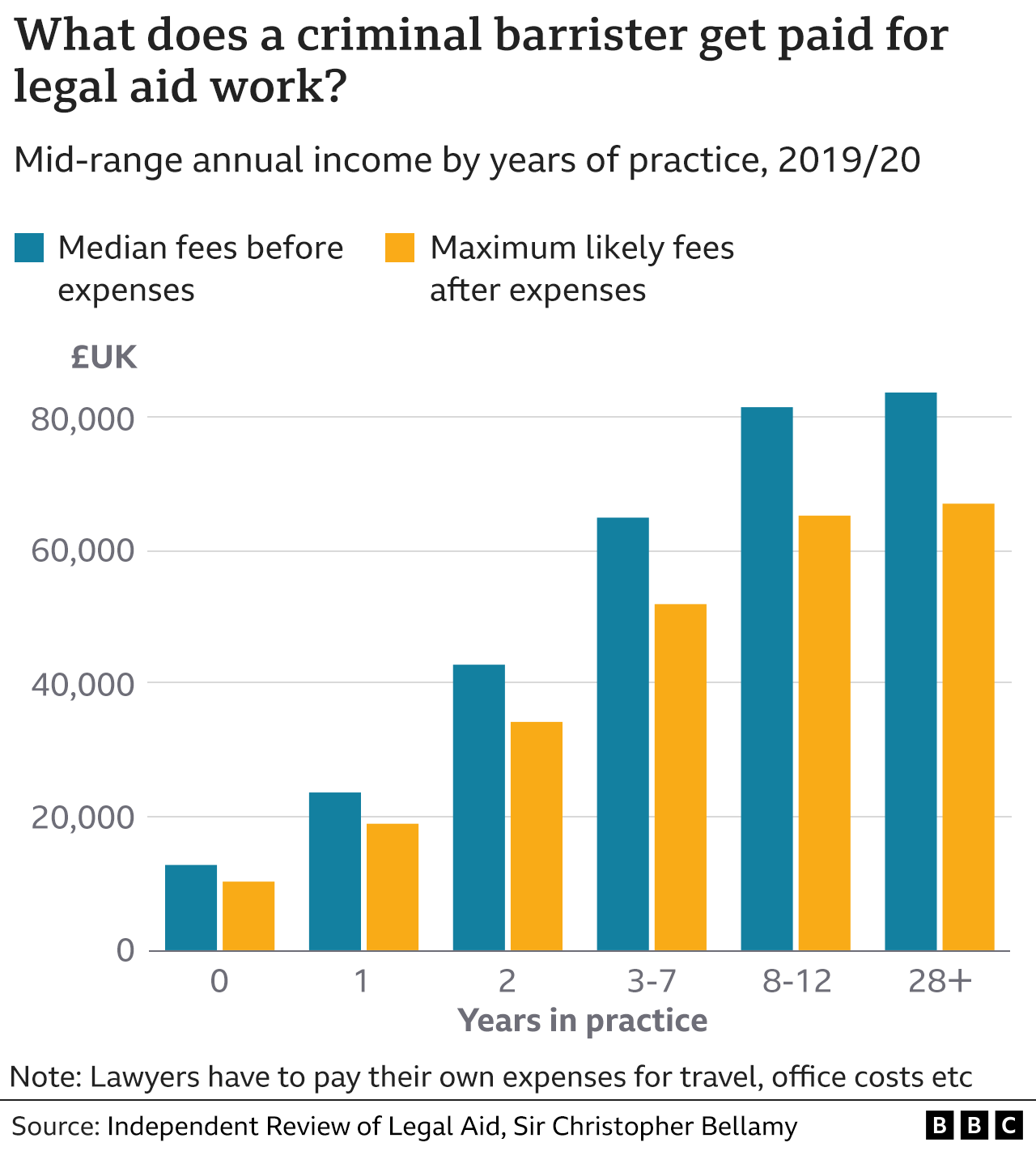Barristers voting on all-out strike call
- Published

Lawyers outside the Royal Courts of Justice in London on 4 July as they strike in a dispute over pay
Barristers are voting on proposals for an all-out strike next month as part of an ongoing row with the government over pay and legal aid cuts.
The indefinite, uninterrupted strike - which comes after weeks of walkouts - would start on 5 September.
The ballot closes at midnight on Sunday and the result is expected on Monday.
More than 6,000 court hearings have been disrupted in England and Wales as a result of the walkouts by members of the Criminal Bar Association (CBA).
The CBA is asking for a 25% rise in pay for legal aid work, representing people who could not otherwise afford lawyers.
Criminal barristers are due to receive a 15% fee rise from the end of September, with the Ministry of Justice (MoJ) saying the increase would see the average barrister earn about £7,000 more annually.
But members of the CBA have rejected the government's pay offer, saying it would not kick in immediately or apply to existing cases.
During the first 19 days of industrial action between 27 June and 5 August, 6,235 court cases were disrupted, including 1,415 trials, across England and Wales, according to MoJ data.
The CBA said the walkouts have had a "devastating impact on the ability of our Crown Courts to function with any semblance of normality".
It added that "the continuing refusal of the justice secretary to negotiate a fair settlement with criminal barristers comes at a very heavy price", measured both by the financial waste of courtrooms sitting idle and by the impact on complainants, defendants and witnesses.
The CBA said members had indicated that there "should be no pausing or halting of the ongoing programme of strike action".
"Given the expectation that the ongoing strike action will inevitably lead to the progressive incapacitation of court business, there is no doubt that resolving this dispute will be the critical priority of any incoming justice secretary," the CBA added.
An MoJ spokesman said: "The only outcome of escalating strike action is further distress for victims forced to wait longer for justice."
The MoJ added that backdating pay would require a "fundamental change" in how fees are paid.
"That reform would cost a disproportionate amount of taxpayers' money and would take longer to implement, meaning barristers would have to wait longer for payment," a spokesperson said.


CAREER CRIMINALS: If you had already made millions, would you keep offending?
RINSE AND REPEAT: What's the point of mouthwash?
